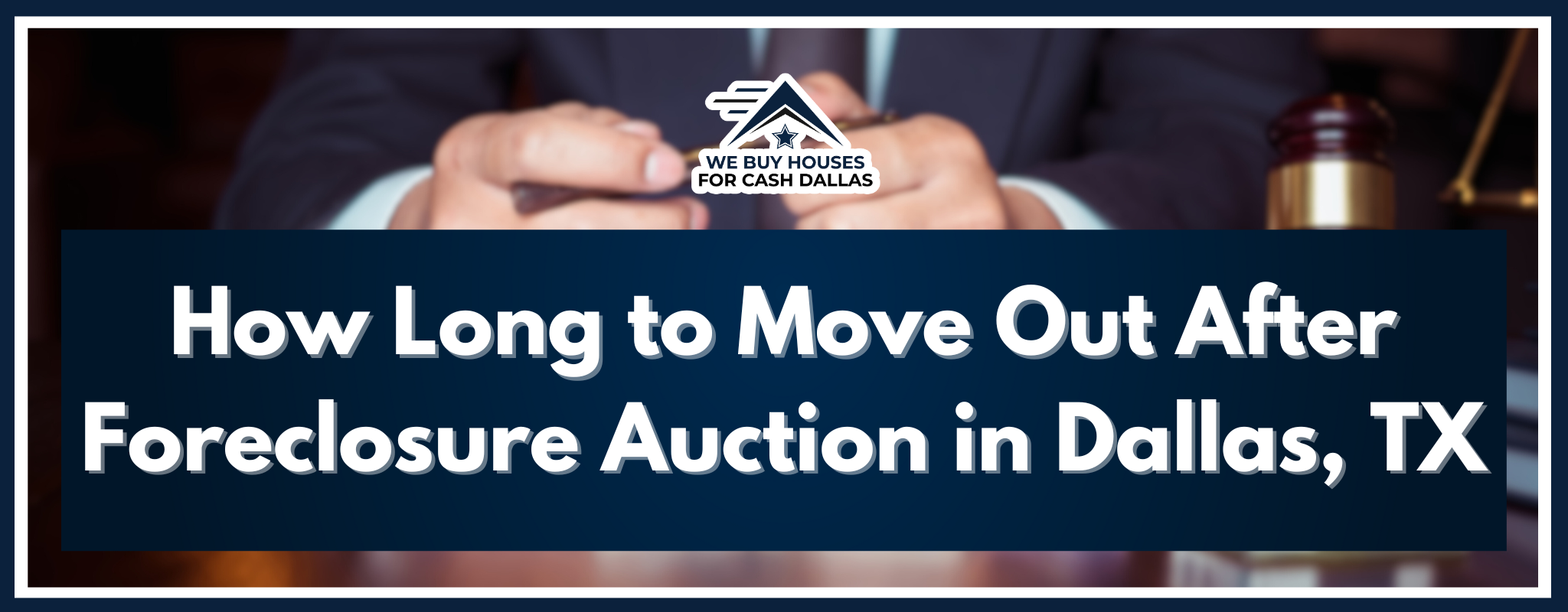
Effects of Foreclosure on Homeowners in Dallas
Foreclosure is a challenging process for many homeowners in Dallas, Texas. It happens when a lender tries to take back money from a borrower who has stopped paying their debt by selling the house used as collateral. This section will discuss the effects of foreclosure, including what happens after foreclosure, its impact on credit, and emotional outcomes.
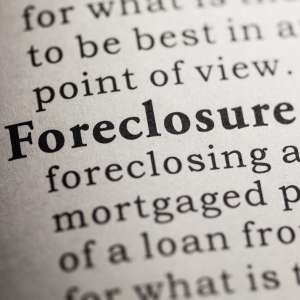
What Happens Post-Foreclosure in Texas?
People can lose their homes quickly in Texas—sometimes in just a few months. People who lose their homes in foreclosure usually have to go through an eviction. Because of a court order, they often have to leave quickly. When to leave changes, but making plans ahead helps keep things running smoothly.
Homeowners must decide on their next steps after the highest bidder purchases the house at the auction. Finding housing help and knowing their rights can make moving easier.
How Does Foreclosure Impact Credit Scores?
Foreclosure hits credit scores hard. Up to seven years on a credit record might hurt finances. A low credit score makes securing credit difficult and may raise interest rates. Paying other bills on schedule and employing credit repair services can rebuild credit. Consult a lender or financial counselor to find a mortgage and reduce credit risk.
What Are the Emotional Effects of Losing a Home?
Losing a house can lead to worry, anxiety, and sadness. Foreclosure has an impact on people’s and families’ financial stability. Seeking help from counselors and community services is critical. Developing coping methods and connecting with others dealing with similar challenges can provide comfort and support during this difficult period.
Legal Rights for Homeowners in Dallas
Knowing legal rights is essential for foreclosed homeowners in Dallas. Texas law offers certain protections, and having good legal help can help one navigate property laws. Knowing these rights can prevent illegal acts during foreclosure.
Are There Legal Protections for Foreclosed Homeowners in Texas?
There are formal safeguards in place. People who own homes in Texas have rights, such as getting the right amount of notice before evicting. Legal aid groups can help with foreclosure protection. Know these steps and do something if something doesn’t seem right.
What Steps Can Be Taken to Challenge a Foreclosure?
Challenging a foreclosure involves several actions. In Dallas, homeowners might hire an attorney for legal action and foreclosure defense. Options like loan modification, refinancing, or a short sale may help. Talking with lenders might lead to solutions, and understanding these processes increases the chances of success.
For homeowners wanting to sell their houses quickly, We Buy Houses For Cash Dallas offers easy solutions without the hassle of a traditional sale.
Understanding the Foreclosure Auction Process in Dallas
What Takes Place During a Foreclosure Auction?

A foreclosure auction is a public sale where banks sell homes they have taken back from people who owe them money. People in Dallas get together to bid on these foreclosed homes. The auction starts with a minimum bid that is generally enough to pay off the loan and any fees. The buyers then put in higher bids until no one else does. The person who bids the most gets the property.
Who Can Attend a Foreclosure Auction in Dallas?
In Dallas, foreclosure auctions are open to the public. Anyone can attend, but most attendees are prospective buyers, investors, and real estate professionals looking for deals. To participate in bidding, you need to register as a bidder. Sellers often require buyers to show proof of funds or a deposit to confirm they are serious about purchasing.
What Determines the Outcome of an Auction?
The outcome of a foreclosure auction depends on several factors. The winning bid determines how much someone will pay for the property. Auction rules set by the lender and the property’s value also play a role. A higher property value might lead to more bidders, raising bid amounts. The highest bid meeting the lender’s terms wins the auction.
Auction Requirements and Regulations in Texas
In Texas, strict rules govern foreclosure auctions to ensure fairness. The process includes providing proper notice to homeowners and adhering to specific timelines. Auctions must also be public to ensure transparency. Failure to meet these legal requirements could allow bidders to challenge the auction.
What Legal Notices Are Required Before an Auction?
Before a foreclosure auction, authorities must issue specific legal notices. The borrower must receive a notice of default about missed payments. A detailed foreclosure notice, providing details about the property and auction, is also filed in public records. These notices ensure everyone involved is informed and that the auction follows the law.
How Is the Auction Advertised in Dallas?
Sellers promote foreclosure auctions in Dallas to attract buyers. Public notices appear in local newspapers and online real estate listings. Officials might also announce auction details on public platforms and real estate websites. This broad advertisement helps draw interest from the Dallas market, creating a competitive bidding scene.
Understanding these processes is key for buying at a foreclosure auction. At We Buy Houses For Cash Dallas, we offer guidance and help to navigate the complexities of foreclosure purchases.
Moving Out After a Foreclosure Auction in Dallas
How Soon Must You Vacate After a Foreclosure?
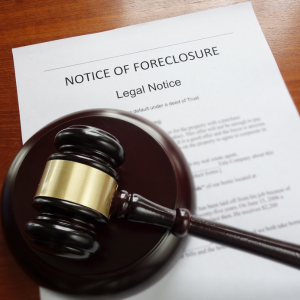
After a foreclosure auction, you might wonder how quickly you must leave the property. In Dallas, the new owner usually gives an eviction notice if you still live in the home. Dallas foreclosure eviction laws outline the eviction timeline that you need to follow. Once you receive a formal notice, you typically have a set period to vacate after the foreclosure. Knowing your rights and understanding this process can help you prepare for your move.
Is There a Grace Period for Moving Out in Texas?
In Texas, the eviction process after foreclosure may allow for a grace period, depending on the situation. Homeowners want to know how long they have before they must move out. Each case can be different, but the Texas foreclosure eviction process often allows time for making arrangements. Check if you have received a legal notice detailing your move-out timeline. Understanding your homeowner rights can make the transition smoother.
What Happens If You Don’t Move Out on Time?
Not leaving your property on time can lead to serious issues. Eviction procedures in Dallas involve legal action, including a sheriff’s eviction. If you don’t follow the eviction order, authorities may forcibly remove you. Bank-owned property evictions follow strict rules to prepare the property for resale or rental. While tenant rights offer some protection, following the Dallas eviction process is essential to avoid fines or penalties.
Assistance and Resources for Moving
Leaving your home after a foreclosure can be challenging, but help is available. Various local agencies in Dallas provide moving assistance and financial help. If you need temporary housing or support relocating, explore the aid options available.
What Options Exist for Financial Help After Foreclosure?
If you need financial help after foreclosure, consider many aid programs. Government help, nonprofit organizations, and counseling services can offer relief options. Reach out to these programs for guidance and support to aid your financial recovery. Knowing these opportunities can help stabilize your situation.
Can Local Agencies in Dallas Provide Support?
Yes, local agencies in Dallas can provide the support you need. City resources and community programs aim to offer housing assistance and build a support network. These agencies work to help residents during tough times, ensuring access to the tools and guidance necessary for recovery.
Alternatives to Foreclosure in Texas
Many homeowners find facing foreclosure scary, but there are ways to handle this challenging situation. Knowing your options can help you make smart choices and protect your future finances.
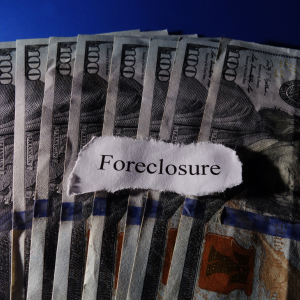
What Are Viable Solutions to Avoid Foreclosure?
Lenders might offer options such as lowering the interest rate or extending the loan term to make payments more manageable. In Texas, lenders can move the foreclosure process quickly, leading to an auction if borrowers miss payments. Homeowners can avoid foreclosure with these options:
- Loan Modification: You can ask your lender to change the terms of your loan. Lenders might offer options such as lowering the interest rate or extending the loan term to make payments more manageable.
- Refinancing: If you qualify, refinancing your mortgage can secure a lower interest rate, reducing your monthly payments.
- Short Sales: With the lender’s approval, you can sell the property for less than what you owe on the mortgage. Taking alternative measures can reduce the credit impact compared to foreclosure.
- Repayment Plans: Work with your lender to create a plan that helps you catch up on missed payments over time.
By knowing these solutions, homeowners like Dallas, Texas, can prevent foreclosure and better manage their finances.
Can Loan Modifications Prevent Foreclosure?
A loan modification can change the original terms of your loan so your monthly payments are lower. Loan modifications or refinancing can help if you’re struggling to make payments but want to keep your home. Your lender might adjust your interest rate or extend the loan term. To qualify, you usually need to show financial hardship. A successful loan modification can help you avoid foreclosure in Texas.
How Do Short Sales Work in Dallas?
In Dallas, a short sale means selling your home for less than what you owe on the mortgage. Selling the property can be a good choice if market conditions favor a quick sale and the lender agrees. A buyer then purchases the property, letting homeowners settle debts without foreclosure. While this affects your credit score, it’s usually less damaging than a foreclosure.
Exploring Refinancing and Repayment Plans
You can use refinancing and repayment plans to tackle possible foreclosure in Texas.
- Refinancing: You get a new loan with better terms to pay off your mortgage. Refinancing or modification might lower your interest rate or extend your loan, making payments more manageable.
- Repayment Plans: These plans let you spread out missed and regular payments over a period. A loan modification or repayment plan can help you keep your home and gradually reduce debt.
Both require careful thought and detailed discussion with your lender.
What Refinancing Options Are Available in Texas?
Homeowners in Texas have different refinancing options:
- Rate-and-Term Refinance: This option lowers your interest rate or changes the loan term to cut monthly payments.
- Cash-Out Refinance: If you have enough equity, this option lets you refinance for more than you owe and take the extra money in cash. Borrowers can use home equity loans or cash-out refinancing to pay other debts or improve their property.
Each refinancing option has different requirements and effects, so it’s wise to talk with financial institutions to find what’s best for you.
How Can Repayment Plans Help Retain Ownership?
Repayment plans are agreements with your lender to pay back missed payments over time while keeping up with current ones. These plans add smaller amounts to your regular payment until you’ve paid off the overdue balance. They are crucial for preventing foreclosure because they show you plan to meet financial responsibilities while keeping your home in Texas. Working with your lender on a sensible plan supports financial stability and home ownership.
For more help with these options, contact experts in foreclosure alternatives and real estate solutions.
Legal Implications and Future Considerations
How Long Does a Foreclosure Stay on Your Record?

In Texas, a foreclosure can significantly affect your credit score. It usually stays on your credit report for seven years from the first missed payment that led to the foreclosure. During this time, getting loans or reasonable interest rates can be challenging. Knowing this timeline can help you make better financial decisions in the future.
Does Texas Law Allow Expungement of Foreclosure Records?
Removing foreclosure records under Texas law can be complicated. Usually, foreclosure records stay on your credit history because they are part of court proceedings. If you think your foreclosure was a mistake, talking to an attorney might help you explore options to challenge it in court. However, removing these records is rare, so it’s essential to have realistic expectations.
How Can Foreclosure Affect Future Home Purchases?
Having a foreclosure on your record can make it harder to buy a home later. Lenders may see it as a considerable risk, affecting your credit score and ability to get a loan. It can take several years of good financial habits to qualify for a regular mortgage again. Working on rebuilding your credit score and showing financial stability can help you improve your standing with lenders.
Planning for Life Post-Foreclosure
Planning your financial recovery after a foreclosure is crucial. This period involves rebuilding your credit, making a solid financial plan, and looking at new housing options. Budgeting and actively fixing your credit can speed up your economic recovery and help you get back on track.
What Steps Should Be Taken to Rebuild Credit?
Here are steps to rebuild credit:
- Check Your Credit Report: Get your credit report to find errors or delinquent accounts.
- Pay On Time: Pay all current bills on time to build a good payment history.
- Manage Debt: Cut down existing debt, focusing on high-interest accounts first.
- Mix Your Credit: Different types of credit, like installment loans and credit cards, can help improve your score.
- Watch Improvements: Monitor your credit score regularly to see improvements and adjust strategies when needed.
Are There Counseling Services Available in Dallas?
In Dallas, there are many counseling services for those recovering from foreclosure. These services offer financial counseling and advice, helping people explore housing options and rebuild financially. Local agencies and community resources can be beneficial, providing guidance and assistance tailored to your situation. Seeking counseling can be essential to regaining control of your finances.
For more detailed insights into these topics, We Buy Houses For Cash Dallas can connect you with local experts to guide you through your post-foreclosure journey.
FAQs:
What is the timeline to vacate after a foreclosure auction in Dallas, Texas?
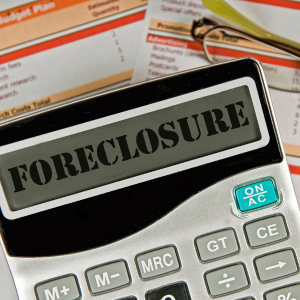
After a foreclosure auction in Dallas, you usually have 20 to 30 days to move out. The new owner, the highest bidder, must give you an eviction notice if you don’t leave alone. This timeline can change based on court schedules and local rules.
What happens when a property is sold at a foreclosure auction in Texas?
When a property is sold at a foreclosure auction in Texas, the highest bidder becomes the new owner. They have the right to take over the property. You’ll need to know Texas’ post-auction eviction rules, as the new owner must give proper notice before starting the eviction process.
How does the foreclosure eviction process work in Dallas?
In Dallas, after buying a property at auction, the new owner issues an eviction notice, usually giving tenants three days to leave. If you don’t move out, they can file an eviction lawsuit. The court process might take a few weeks, depending on scheduling.
Can legal assistance help in delaying eviction after foreclosure in Texas?
Yes, consulting with an attorney or firm specializing in foreclosure can help. They can check for mistakes in the foreclosure process or negotiate more time for you to move out. While not consistently successful, delaying eviction after a foreclosure auction is worth considering.
What are Dallas foreclosure eviction laws I should know about?

Dallas foreclosure eviction laws require the new owner to give a formal notice. After the auction, you usually get a three-day notice to vacate. If you don’t leave, the new owner can file an eviction lawsuit in court.
Is there a difference between judicial and non-judicial foreclosure in Texas?
Yes, there is a difference. Judicial foreclosures need a lawsuit to sell the property, while non-judicial foreclosures do not. Texas mainly uses non-judicial foreclosures, which are quicker but follow strict rules, including proper notice of the sale.
What role does a sheriff play in eviction after foreclosure in Texas?
In Texas, if the court issues an eviction order after a foreclosure auction, the sheriff or constable enforces it. They can remove you and your belongings if you refuse to leave after getting the proper notice.
How do auction eviction rules in Texas protect tenants?
Auction eviction rules in Texas require tenants to get proper notice before eviction. Depending on the new owner’s plans, tenants with valid leases might be allowed to stay until the lease ends. After a foreclosure sale, landlords usually give tenants without a written lease a standard notice to leave.
Key Insights
- The time you move out after a foreclosure auction in Dallas can vary. Keep an eye on any legal notices and eviction proceedings.
- Understanding what an eviction notice after foreclosure means in Texas is essential. This helps you follow state rules and avoid being forced to leave.
- Once the auction ends, the move-out timeline might change if the property becomes bank-owned.
- Talk to an attorney about the legal timeline for eviction after foreclosure. They can help protect your rights.
- How long you have to leave after a foreclosure in Dallas depends on state laws and your mortgage agreement.
- Legal experts can help explain how long you can stay after a foreclosure auction in Texas so you know what to expect.
- Learning about the foreclosure auction process in Texas can help you plan and avoid sudden surprises with eviction.
- If you’re facing eviction after a foreclosure auction, it’s wise to seek legal advice. This ensures you follow the local Dallas timelines correctly.
Read on to learn how to sell a house in Texas. The tips and guidelines are applicable statewide, including cities like Dallas, El Paso, Houston, Austin, San Antonio, Fort Worth, and nearby regions. For personalized assistance, Contact Us at (469) 765-3669.


